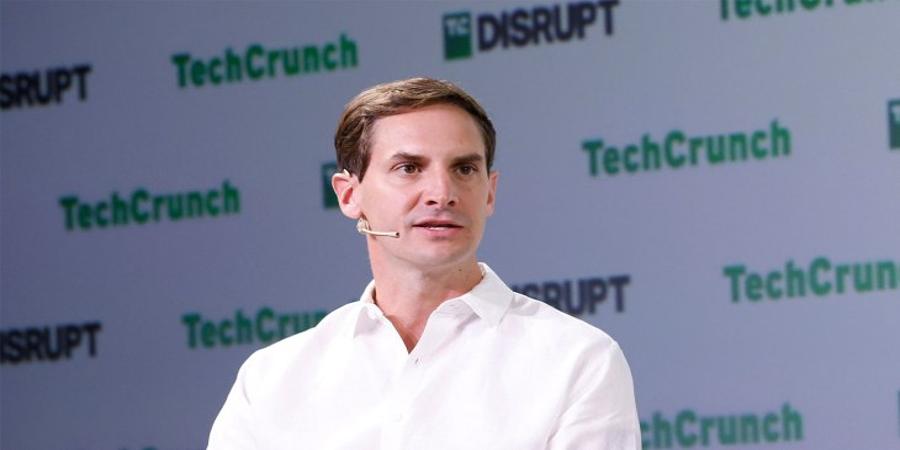Sam Blond is leaving Founders Fund, as well as the profession of venture capitalist, just 18 months after he joined the storied Silicon Valley firm.
In a tweet on Monday, Blond expressed his gratitude at the chance to work at Peter Thiel’s VC firm and explained, “Full time investing / being a VC isn’t the right fit for me and I’ve decided to go back to operating.” That likely means he’s either accepted/about to accept a position at a startup or another tech company, or is in the process of founding one. Reached earlier today, Blond told TechCrunch he had “no comment outside of the post for now.”
Some personal news – last week was my last week at Founders Fund. Full time investing / being a VC isn’t the right fit for me and I’ve decided to go back to operating. More on what’s next for me later. For now just immense gratitude to FF and all the incredible people and…
— Sam Blond (@samdblond) March 4, 2024
Before joining the VC firm, Blond was best known as the former chief revenue officer at Brex. Brex is not a Founders Fund portfolio company, although Founders Fund is an investor in one of Brex’s biggest competitors: Ramp. So Blond’s jump to the VC firm raised a few curious eyebrows, especially because at the time — September 2022 — Brex had reached decacorn status with a $300 million raise. That’s an odd time for a top salesperson to bow out. Typically, startup employees are salivating at the riches to come via an IPO or another exit when their company is experiencing such success. Prior to that, he was VP of sales at Zenefits, the once high-flying-then-troubled HR tech startup that was backed by Founders Fund. TriNet bought Zenefits in 2022.
The departure is a publicly friendly one. “Sam is a fantastic operator and he’s been a great resource for our founders. We hope to have the opportunity to work with him again,” Founders Fund spokesperson Erin Gleason tells TechCrunch. And maybe there’s a clue in there that the VC firm may one day back whatever new thing Blond is doing — or at least listen to the pitch.
But this is the second splashy departure of a Founders Fund partner over the past couple of months. Keith Rabois shocked the startup world when he left in January to return to his former firm Khosla Ventures.
It’s fairly rare for senior partners to leave their funds for other funds — especially prolific dealmakers like Rabois — because their earnings are tied to the results of their investments, and such investments can take years to mature. The situation creates some solid golden handcuffs. It is more common for those who come from a startup operations world, like Blond, and who have invested with their own money, to leave a VC role after a short time. Investing other people’s money is a very different skill.
And Founders Fund is a bit unusual in how it operates, too. While all Silicon Valley firms give lip service to being pro-founder and founder friendly (otherwise, no founder would sell them a chunk of their company), Founders Fund has some more stringent rules about that.
As Founders Fund partner Trae Stephens told TechCrunch’s Connie Loizos at the StrictlyVC LA event last week, “We are founder absolutists,” he said. The firm’s partners rarely take board seats: “we always vote with founders. And at the point that a company no longer has a founder as CEO, we are out. We don’t invest in non-founder-led businesses.”
Still, the firm doesn’t disqualify its partners from simultaneously being founders of their own startups, too. Thiel famously founded Palantir, for instance. Rabois founded OpenStore and Stephens co-founded Anduril. Many other VC firms also have partners who simultaneously run startups. If being a founder and a VC isn’t automatically mutually exclusive, that means a desire to be “an operator” may not fully explain why Blond took his leave.
Other than what he’s said publicly, we don’t know the other reasons. However, many VCs prefer to think of themselves as a “value-add” partner, meaning they want to be involved in helping the business they back, and at Founders Fund such involvement is frowned upon.
“The more that a VC says, ‘I’m going to add value,’ the more you should hear them say, ‘I’m going to annoy the ever living crap out of you for the rest of the time that I’m on the cap table,” Stephens told the Strictly VC audience. “So I think our approach is more, you know, we’re going to invest in the company because we believe that that founder or that group of founders are the people that are going to grow this business.”
And that means that a VC’s career there depends on choosing winners while having very little say in how those choices operate.
Source @TechCrunch



